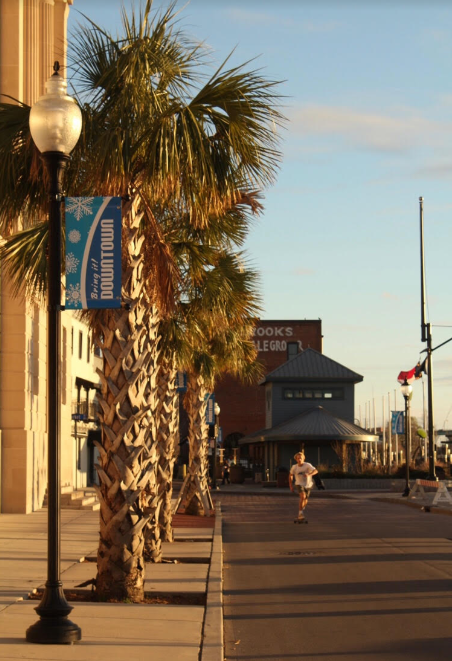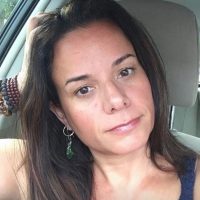
My racism is unique to me.
I am an American, and I was born here to immigrant parents.
My racism is complicated. It is deeply internalized. I am Latin, and at the age of 46, I am still shining a light on its shadows.
I believe most people’s racism and prejudices are complicated and personal too. Over the years, I’ve had to understand and come to terms with my personal beliefs.
My father was racist. He would make fun of any other culture: Black, Asian, Jewish; no one was spared. Yet he was my father, and I loved him. My mom was different; she too was a racist, but not overtly. Her prejudice came in the form of comments such as, “You’re lucky you are lighter-skinned than your cousins.”
Her racism also manifested in the way she could not quite make eye contact with anyone white. If she had to address someone in English, the strong woman we saw inside our home or around family would dissolve, and her shoulders would fall into submission. Racism came subliminally to me through the message I got that my Spanish heritage, on my father’s side, was thought to have more value than my mother’s Honduran one.
The trajectory of my life was irrevocably altered when a New York City police officer shot my older brother in the head. I was nine years old, and still do not know the full circumstances of the incident. Was my brother, a Green Beret and paratrooper stationed at Fort Bragg for most of my life, a hero? Was my 27-year-old brother, a darker-skinned immigrant from Honduras, drunk and disorderly? Or was it a case of mistaken identity?
I do not know. Either reality is feasible. What I do know, and what was evident to me at the tender age of nine, was that there was no justification for such a violent death. Staring at the exit wound at his temple while praying countless rosaries at his casket taught me that.
My story is as unique to me as a fingerprint or snowflake. And because of that, I knew I had to become aware of my racism and heal my wounds if I was going to grow and evolve. When I turn on the news or log on to Facebook, I see many friends trying to discuss racism from a political perspective. As if the complexity and history could be whittled down to two sides of an issue. Black and white—forgetting all the shades in-between.
As a child, I thought white privilege meant you had it better. It was not something offensive or something to feel guilty about. It was, to me, a dream. My white friends seemed better off: both parents in the picture, financial stability, funds for college set aside. As a young Latina, white privilege looked like best practices and something to aspire to, and in many cases, I still do.
By the time I was a teenager, I hated myself for being Latin, and my internalized hatred took over. I wanted my name to be Jennifer. I wanted to have blond hair, blue eyes, and date a guy named Paul. That internalized racism played out for many decades.
By my late 20s, I had climbed the corporate ladder. My racism only reared its head in an irrational hatred of all things J.Lo, though I secretly consumed everything she created. I was a single executive, blessed enough to travel the world for work. I left a Washington D.C.-based company, packed up my apartment, and followed a man to Wilmington, North Carolina. As I cruised down I-40 to my new home, my inner thoughts felt like a boulder-sized chip on my shoulder. I was born in N.Y.C., raised in Miami, and moving from D.C. To me, Wilmington was a small town. But I was a big city girl, and I knew everything.
Of the men I could have chosen to marry, I chose one so white he was English and raised in the incredibly affluent North Shore neighborhood of Chicago. Twenty years, one divorce, and what feels like 20 lifetimes of lessons later, Wilmington has become my home, my heart, and the backdrop to my children’s childhood.
When I had my twins, I was conflicted about them being born in North Carolina. To be blunt, I was prejudiced. I thought it would make them “less than” in some way. I was a passionate liberal in what then felt like a very red part of a very red state. I was an open atheist who would wonder aloud why Wilmington had so many churches near cultural references to the Civil War. The first time I saw a southern belle dress at the yearly Azalea festival, I joked, “They realize they lost, right? Like it’s not a great time in history to highlight?”
Over time, my views fell away as I came to love my hometown and many of its residents. Seeing a Confederate flag was not uncommon, and it no longer gave my heart pause. It just became part of the scenery.
I’ve been able to experience the history of Wilmington through the eyes of my children, which has often been an awkward experience. On a trip to the Wilmington Cape Fear Museum, we learned of the origins of their private school, Cape Fear Academy, which started as an escape for rich whites to avoid integration. I remember the look of confusion in my daughter’s eyes as she devoured the town’s history, realizing that the familiar name of her favorite park honored a white supremacist, Hugh McRae, who deeded the land to the county for use by whites only. Growing up, my daughter visited her best friend on Stonewall Jackson Drive in a neighborhood down the street from our own. It was years before we realized that the neighborhood had been built as yet another escape for white Wilmingtonians who feared integration. We went on field trips to the pretty side of plantations and hosted many a camping activity under the same stars slaves slept under so many years ago.
We discovered on our own, piece by piece, the historical information that I only hoped would teach them to know wrong from right. I don’t remember saying much to my children. I guess I made an assumption, by my silence, that if I focused on the good—the beautiful location, the incredible weather, and all the amazing people I have come to love in our hometown—the backdrop could be ignored. I did not see hate. I saw love and a community ready to rise to offer compassion and assistance where needed, but the backdrop remained the same: an ugly past.
My racism and prejudices are my own, like a material woven into a favorite gown I wore. And they emerged again years later when I would host an annual White Trash Christmas Party. I didn’t think of it as racist at the time; it just seemed like good ol’ fun, and I’m pretty sure my guest list was 100 percent white. So, I reasoned, it couldn’t be racist—could it? The shame I feel as I write these words tells me I was wrong. But nothing compares to what one of my own children said about poor people one day. When I asked where they’d learned such language, they reminded me of those parties I’d loved throwing and I realized they’d learned it from me.
So maybe, if you find yourself confused or unsure of how to react during these turbulent times, and—dare I say it—white, before you post views, share content, or designate who is or who isn’t racist, do a little emotional cleaning and healing for yourself. I am still in the process of healing and coming to terms with my own history, and this written piece is part of that process.
I think we would all do well to do a little healing these days. I’ve had to look into what was in my heart. What downloads did I receive as a child? Over time, deconstructing the interjects that covered my inner child’s soul became less about blaming my family of origin and more about awareness, healing, and evolution.
I am no longer an atheist, and I find comfort in daily prayer and meditation. In my healing experience, I’ve learned to dig deep and have grace and compassion for myself and for others, and forgive my own transgressions as well as those of others. I pray for everyone. I pray for those who are feeling the pain and suffering of violent and deadly racism. I pray for those waking up to the notion that, as a country, we have to acknowledge and apologize for our wrongs and injustices—something we have yet to do. I pray for those who are suffering from internal conflict, who are hoping this all goes away, and perhaps realizing that it won’t.
I don’t think our modern-day problems will just disappear, especially without the mass healing we so desperately need. To me, it is obvious the solution is not political, but rather spiritual. On many levels, we are just waking up. Racism is complicated. Prejudice is ugly. The cycles will repeat and morph, but real change occurs when we lead with our hearts and change our patterns. The first step to breaking a pattern is awareness, and it feels both like we are just getting there and like we have a way to go.
I love Wilmington, North Carolina. I love the people who have become my family here. I believe with as much time as we are spending in the national and local news these days, we are being invited to heal, grow, and evolve. So let’s put the statutes in a museum. Let’s ask for forgiveness of past transgressions and focus on the love we have for our town.
I believe that to change the world and make an honest pivot from our past, we must look within first. Jesus said it. Buddha said it. And many more scholarly and spiritual people than I have said it—it’s time to go within and heal ourselves so we can heal the world.
~








Read 21 comments and reply